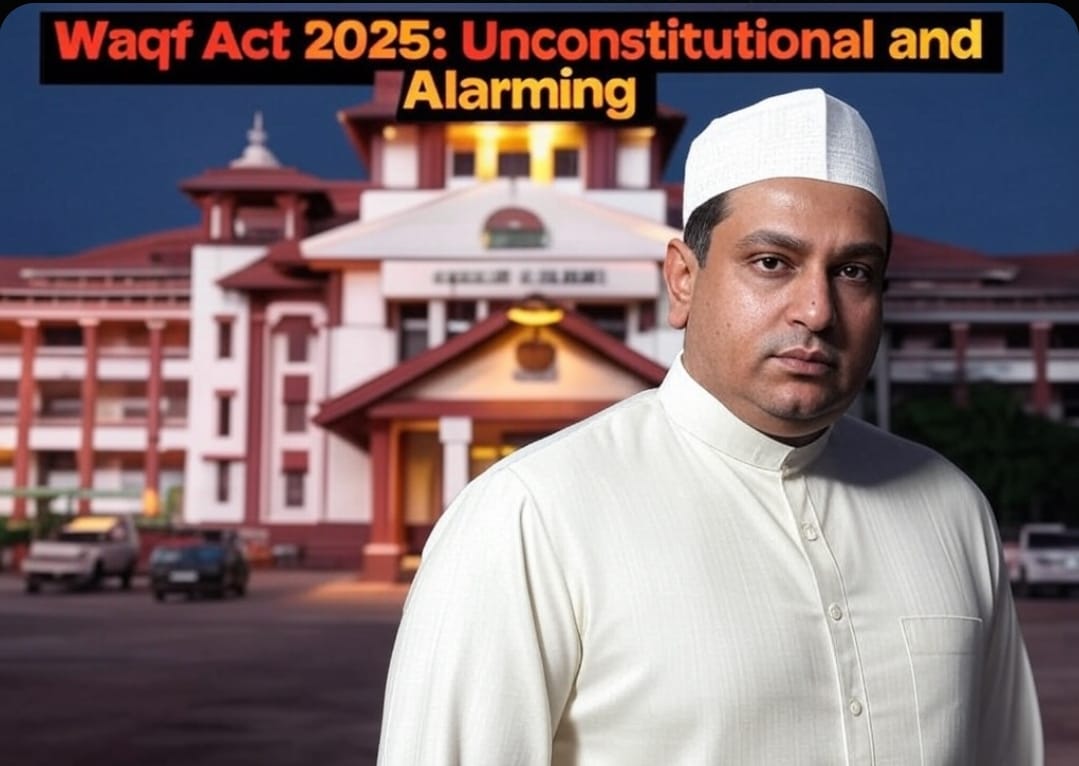In a fiery showdown before the Supreme Court, the Kerala State Waqf Board has torn into the Waqf (Amendment) Act, 2025, calling it “unfair,” “unconstitutional,” and a blatant attack on religious freedoms.
Filed through Advocate Subhash Chandran, the Board’s first official response leaves little unsaid. It accuses the Centre of trying to quietly dismantle the autonomy of Muslim religious institutions under the guise of “reform.”
At the heart of the fight is the removal of Section 40—a section that once allowed Waqf Boards to decide whether a property was Waqf. Without it, the Board warned, their ability to protect religious land is on shaky ground.
“This isn’t just a legal technicality,” the Board’s reply stressed. “It’s about protecting centuries-old endowments made in the name of God. Taking away the Board’s role and handing it to district collectors invites delays, confusion, and ultimately, the loss of precious Waqf lands.”
The Government, meanwhile, has stood firm, with Union Minority Affairs Minister Kiren Rijiju earlier branding Section 40 “draconian.” But for the Board, this label doesn’t hold water. It pointed out that courts—including the Supreme Court itself—have historically upheld the importance of the Board’s decisions under this section.
Jail Time for Caretakers? New Punishments Raise Alarm
If that wasn’t enough, the Board flagged even deeper concerns with the new rules. Under an amended Section 61, Mutawallis (caretakers of Waqf properties) could now face jail time or fines up to ₹1 lakh for failing to obey orders or missing an online update.
To the Kerala Waqf Board, it felt like overreach—plain and simple.
“We have never seen a situation where religious caretakers are threatened with jail for administrative errors,” the Board said. “Imagine this happening to the caretakers of temples, churches, or gurudwaras. Why is it acceptable here?”
The Board argues that forcing Mutawallis to upload sensitive property and financial details on a Central portal every year opens the floodgates to heavy-handed interference—something no other religious community faces at this scale.
“Pick and Choose” Targeting?
One of the sharpest charges in the Board’s reply was about selective targeting.
Unlike other religious groups, Muslims—through Waqf institutions—are subjected to extensive government oversight, the Board claimed. The new amendments, they argue, only deepen this inequality.
“If uniformity is the goal, why not apply similar laws across all religions?” the Board asked. “Instead, this pick-and-choose policy violates the very idea of secularism enshrined in our Constitution.”
The Board also opposed proposals that would allow non-Muslims to serve on Waqf Boards, calling it a direct violation of the community’s right to manage its own religious affairs.
And it did not mince words over the removal of “Waqf-by-user”—a traditional method where longstanding community usage was proof enough to declare property as Waqf. Under the new law, even that practice is wiped out, making it harder to protect historical religious properties.
Centralization vs. Autonomy: A Bigger Battle?
Reading between the lines, the Board’s real fear is about centralization.
“Everything—from property details to revenue management to disciplinary action—is now being pulled into the Centre’s hands,” the reply stated. “What we are seeing is not modernization; it is bureaucratization.”
There’s a growing worry that what started as administrative reform is snowballing into a fundamental reshaping of how religious institutions in India operate.
The Supreme Court had earlier invited State Waqf Boards and State Governments to file their responses to the new law. Kerala’s stand now adds more fuel to an already heated constitutional debate over religious rights, federalism, and the role of the State in religious governance.
As the Court prepares for the next round of hearings, one thing is clear: for the Kerala Waqf Board, the fight is not just about property—it’s about principle.
About Author

Tanishq, a law student at the Department of Legal Studies and Research, Barkatullah Vishwavidyalaya, Bhopal, is a budding legal writer with a sharp eye for evolving legal landscapes. Passionate about Intellectual Property Rights, Constitutional Law, and Women and Child Safety Laws, Tanishq actively explores contemporary legal nuances through writing and research.

